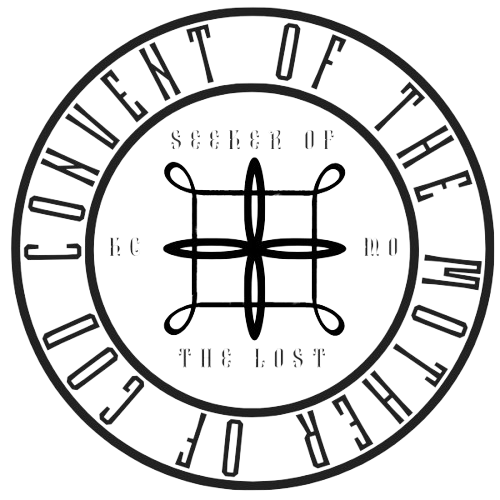Our spiritual father has given us a teaching that, like many teachings of the Church, is simple but not easy to apply: the key to spiritual life is: a) to be honest and b) to speak and act without ulterior motives.
When we do this, the subconscious* is eliminated and our spirit, soul, and body are integrated. Becoming integrated is the goal of the Orthodox Christian life and is an essential aspect of salvation, for a nun or a layperson. If we are not integrated, we are divided and controlled by our subconscious, and our salvation is at stake.
*Note: for more information on the Orthodox view of the subconscious, read this article about Archimandrite Symeon Kragiopoulos.
At the beginning of the process of applying this teaching, we are to assume that we have ulterior motives. In every situation, we ask: “What are my ulterior motives in saying or doing this particular thing?” Identifying our ulterior motives is challenging. It attacks our vanity, pride, and high opinion of ourselves. This step can take years, decades, and even lifetimes to work through.
After faithfully asking what our ulterior motives are and accepting the answer, the question will eventually change to: “Do I have any ulterior motives?” And we keep asking and working to eliminate them until the answer is no.
When we first begin examining ourselves in this manner, we might be surprised and horrified at what we find; how frequently our seemingly innocent or virtuous words and deeds are tainted with self-interest; and how selfish, vain, and proud we really are. As a society, we are accustomed to saying one thing when we mean another, asking questions to which we already know the answer for the sake of eliciting a certain response, and generally behaving in a deceitful manner.
For example, a child might ask the teacher: “I’m just wondering, is it allowed for someone to cut in line?” The child tries her best to give the impression that she is “just wondering”; that the question really did arise out of the blue. In reality, she is asking this question because her classmate just cut her in line and she is seeking justice.
If that child were to examine her ulterior motives before asking this question of the teacher, she would be able to address the situation in a more honest way. Instead of talking to the teacher, she would be able to tell the classmate, “I’m feeling hurt because you cut me in line. It made me feel invisible, and it made me feel like you don’t care about me.” This vulnerability would create the opportunity for the classmate to realize the consequences of her actions, ask forgiveness, and make a change. The teacher would not even have to be involved, and the two children would be able to come to a better understanding of each other and grow in their friendship. However, it is second nature for most people to go straight to the teacher, so to speak, without considering that there might be another way.
In his book Monasticism, Archimandrite Zacharias explains the spiritual implications of this type of duplicitousness:
As in God all things are absolute and holy, in Him there is either yes or no. Likewise, man must become an absolute yes to whatsoever pertains to God, and an absolute no to whatsoever is evil. When in man there is both yes and no, he is ‘double minded,’ as the Apostle James says, ‘unstable in all his ways.’
p. 64
When we act with double-mindedness and questionable motives, our deed, however righteous it may appear on the surface, is not an “absolute yes to whatever pertains to God” and is therefore unworthy of Him. It is no longer an offering to Him, but to the idol of self.
We must not let the shame and horror of seeing our double-mindedness keep us from being honest with ourselves and with God. He already knows all about our double-mindedness, selfishness, etc., but because He respects our freedom, He waits for us to willingly offer things up: to offer up sins to be forgiven, passions to be purified, and wounds to be healed. The Church teaches that anything that we don’t offer up can’t be sanctified.
Christ is the Healer, not us. He does not expect us to suddenly have no ulterior motives, become integrated, and be perfect. All He asks is for us to be honest and offer up our ulterior motives as we become aware of them. For example, we could say: Lord, I want to do this work for you, but I am also doing it because I want to make so-and-so happy, impress so-and-so, and alleviate my guilt about this or that… forgive me, Lord! Have mercy on me, and save me in the way that You know.
When we humble ourselves and pray in this manner, we make room for God to do His work. He can do anything. He wants to help us and work miracles in our lives. He can change situations and, more importantly, change us in ways we could never have imagined. He only requires that we invite Him in.
St. Anthony the Great said: “A time is coming when men will go mad, and when they see someone who is not mad, they will attack him, saying, ‘You are mad; you are not like us.’”
We are living in the time of which St. Anthony spoke. In these times, it is not typical to behave in an honest and straightforward manner and to act with pure intentions. Someone who behaves in this manner could be seen by the world as being confusing, off-putting, suspicious, and “mad.” However, the potential of being misunderstood by the world is even more reason to pursue this way of being, as St. Paul writes:
And be not conformed to this world: but be ye transformed by the renewing of your mind, that ye may prove what is that good, and acceptable, and perfect, will of God.
Romans 12:2
In a society that encourages manipulation; celebrates the passions; and views the subconscious as an interesting phenomenon to be researched rather than something to be eliminated; we have to fight hard to live according to Christ’s commandments. It requires purification of our intentions, as we pray for in the Prayer of the Hours: Sanctify our souls, make chaste our bodies, correct our thoughts, purify our intentions, and deliver us from every sorrow, evil, and pain.
It is only when we have pure intentions that these other blessings can come to us. We must change from wanting pleasure, power, human glory, and sin in general to wanting Christ, which means the Cross. The power of the Cross is willingness to die. The old man has ulterior motives, and the old man must die to make way for the new man, who wants to do God’s will and become like Him.


Comments
2 responses to “The Key to Spiritual Life: Act Without Ulterior Motives”
Thank you for this! I havenʼt thought about this in this way before and I find it very edifying and helpful. May the Lord bless you and your work!
Thank you for reading, and may He bless you as well!